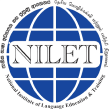Higher Diploma in Teaching English as a Second Language
Duration
24 Months
Total Credits
90 Credits
Introduction to Linguistics
Module Objective:
Increase our knowledge and understanding of the world.
Content
- Textual categories
- Text types
- The history of writing
- Systems of writing
Introduction to Literature
Module Objective:
Improve the students’ overall oral, writing and collaborative skills.
Content
- Character
- Plot
- Setting
- Theme
- Point of View
- Conflict
- Tone
Critical Thinking
Module Objective:
Identify the assumption needed to analyze the case or problem.
Content
- Observation – Observation skills are the starting point for critical thinking.
- Analysis – Once a problem has been identified, analytical skills become essential.
- Inference
- Communication
- Problem Solving
Educational Psychology
Module Objective:
Promote the development of the personality, talents and mental and physical abilities of children and young people to their fullest potential through collaborative work with individuals, families, schools, educational managers and other agencies.
Content
- Behaviourism
- Cognitivism
- Constructivism
- Experimentalism
- Social contextual learning theories
Educational Technology
Module Objective:
Improve the quality of education and enhance the learning process.
Content
- Design
- Development
- Utilization
- Management
- Evaluation
Language Teaching Methodologies
Module Objective:
To develop pupils’ ability to translate texts to and from L2.
Content
- The direct method. In this method, the teaching is done entirely in the language being learned.
- Grammar-Translation
- Audio-Lingual
- The Structural approach
- Total Physical Response (TPR)
- Communicative Language Teaching (CLT)
- Task-based language learning
- The natural approach
Classroom Management
- Module Objective:
Teach pro-social behaviours. - Effectively address issues as they happen.
- Prevent disruptive behaviour.
Content
- Total immersion – It is arguably the most authentic way of learning a new language.
- Traditional study
- Little and often
- Polyglot
Teaching Literature in ESL Classroom
Module Objective:
- Instill and inculcate the reading habit among pupils.
- Enrich pupil’s vocabulary and language content.
- Enhance pupil’s thinking skills.
- Promote cultural understanding in the Malaysian context.
- Improve English language.
Content
- Language based
- Personal enrichment
- Literature as consent
Second language acquisition
Module Objective:
To develop a high level of proficiency in both the L1 and L2 languages.
Content
- Vocabulary
- Phonological components
- Grammatical structures
- Writing systems
Teaching Reading in ESL Classroom
Module Objective:
Predicting the text using prior knowledge.
Content
- Phonics
- Phonemic awareness
- Vocabulary
- Reading comprehension
- Fluency
Teaching Writing in ESL Classroom
Module Objective:
To develop students’ written expression of thought and provide learners opportunities to explore ideas and to build connections between content areas.
Content
- Prewriting
- Writing
- Revising
- Proofreading
Curriculum Design & Materials Development
Module Objective:
To help educational institutions to meet the needs of their students.
Content
- Objectives (aims and goals)
- Content (subject matters)
- Learning experiences and evaluation
Language awareness
Module Objective:
Understand the possible challenges that language presents to learning.
Content
- Phonology
- Morphology
- Syntax
- Semantics
- Pragmatics
Teaching Grammar in ESL Classroom
Module Objective:
Helps provide learners with a structure to recognize as they learn to understand, speak and write new languages.
Content
- Presentation with recognition
- Demonstrating comprehension
- Grammar explanation
- Practice exercises
- Communicative expression
Teaching Listening and Speaking in ESL Classroom
Module Objective:
Create the foundation to a lot of your children’s further learning.
Content
- Grammar
- Vocabulary
- Pronunciation
- Fluency
- Comprehension
Action Research for TESL
Module Objective:
Gaining insight and developing reflective practices that positively influence their students’ outcomes and contribute to the improvement of their own educational practices in general.
Content
- Action
- Research
- Collaboration
- Reflexivity
Introduction to Linguistics
Module Objective:
Increase our knowledge and understanding of the world.
Content
- Textual categories
- Text types
- The history of writing
- Systems of writing
Language Assessment
Module Objective:
Provides students with information and guidance so they can plan and manage the next steps in their learning.
Content
- Aptitude
- Diagnostic
- Placement
- Achievement
- Proficiency tests
Practical Approaches to Teaching
Module Objective:
Teach the students by combining theory and practical work experience.
Content
- Learning objectives
- Assessments
- Instructional activities
Practical Training
Module Objective:
Deepens students’ expertise, allows them to learn on-the-job, supports and compliments the degree programme’s courses.
Content
Temporary exchange of services for experience between the student and an organization. A course of study that involves the supervised practical application of previously studied theory.
Project Paper
Module Objective:
- Deliverables and assets
- Increasing productivity or motivation
Content
Information on economic, technical, financial, managerial and production aspects.


